Must the show go on?

Living in Dhaka has its obvious downs – the horrendous traffic, the atrocious air quality and the repugnant lack of safety for its citizens. While unceremonious deaths are a dime-a-dozen for its citizens, an 'upside' of living here could be the fact that we are mostly desensitised towards the misfortune of others, enabling us to go about our day amidst it.
However, the tragedy of the Bailey Road fire which snatched away the lives of four dozen people is hard to digest, even for Dhaka-ites. Many cultural programmes seemed insipid amidst the shadow of death that loomed over one of the capital's cultural hubs – leading to the cancellation or postponement of some.
Aranyak Natyadal, among many, were prompt to cancel or postpone their activities. One of its shows at the heart of Baily Road, the Mahila Samity, was omitted. "The Aranyak family expresses condolences to everyone affected by this horrible event," says Chanchal Chowdhury. "We cancelled our 4:30pm show in solidarity with the victims." The actor added that he was horrified when he passed by the site of the accident. "I felt eerily empty, the air around the area still reeks of fire, how tragic!"
However, two of biggest shows of the year – the Tecno Music Fest featuring Indian Hip Hop star Badshah and the Bangladesh Premiere League final, took place as planned. Could the events have been postponed?
BPL governing council member Ismail Haider Mallick talked to The Daily Star on the matter. "It was a really difficult place to be in, really," he says. "There is a plethora of reasons why we couldn't realistically postpone the final. The Sri Lanka series starts from March 4, and our national players are needed there. The foreign players had to leave. Moreover, there are issues like broadcast rights that would have been delicate to deal with." The final did, however, pay respects towards the tragedy with acknowledgement and a minute of silence, even though the fireworks looked odd amidst the backdrop of a disaster.
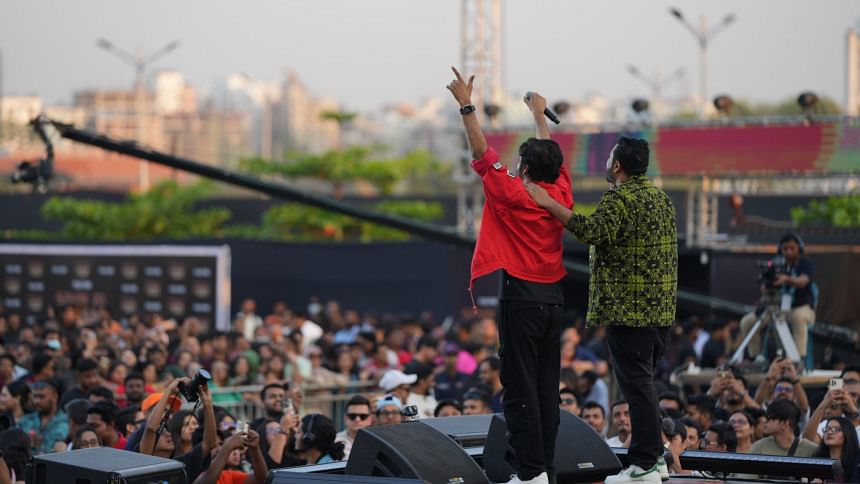
"It is logistically impossible to cancel or postpone a concert of this magnitude," says Nabil Ahmed, the CEO of Triple Time Communications, the organisers of the music fest. "We spent months getting permission from the ministry and the police. We did get Badshah and other artistes to observe silence during the show, in lieu of the tragedy."
Fuad Almuqtadir, who was one of the headliners of the show alongside Badshah, is a bit more conflicted on the issue. "On one hand, I do understand the argument of postponing the shows. We were between a rock and a hard place before, when Israel attacked Hamas and we had to play in the Coke Studio show. However, for us musicians, there isn't much we can do – it is our livelihood and so much is at stake." Fuad himself travels back and forth from the USA on a tight schedule, to play in these concerts.
Musician and journalist Elita Karim also performed in a show on Friday. "Of course, we are all grieving, even during my show, all that everyone could talk about was the fire the other day," she says. "But when people say 'just cancel the show', they are not taking into consideration that there are livelihoods at stake here. From the person who arranges the sound to the people who are behind food stalls, a lot of people depend on these events and performers." Elita emphasises that instead of calling out scheduled concerts, we should look into why these incidents are happening. "We should really prioritise our anger towards why these accidents are happening in the first place."
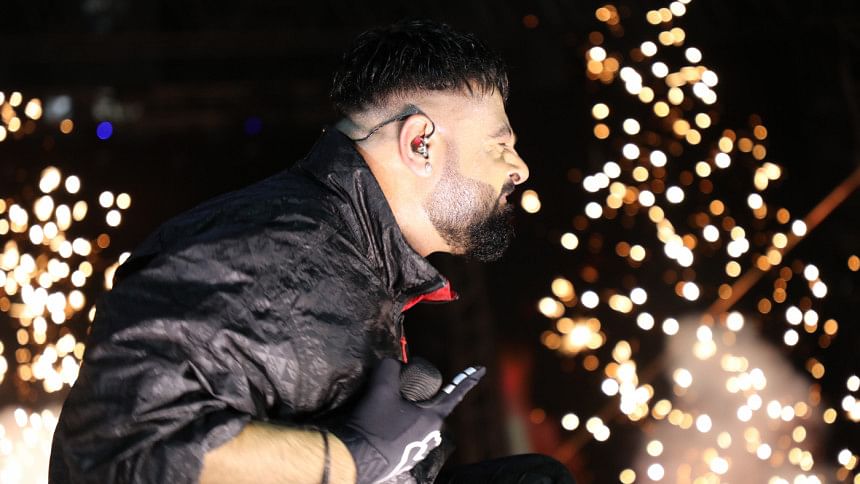
Actress Prarthana Fardin Dighi, who attended the concert, echoed the same sentiment. "I personally know someone who has been affected by the tragedy, and my heart goes out for all the victims," she says. "However, in this industry, it is hard to go back on your word whenever you sign up for an appearance, there are a lot of things to factor in – we can't just cancel sometimes."
Many attendees, however, went due to obligation rather than willingness. "A lot of tickets for the influencers of the event were with me, so I had to go to disperse them. I was totally bereft of joy," says Rubama Fairuz, a make-up artist and influencer. "I did not see many people my age there, there were mostly people in their teens and early twenties. They were enjoying a lot, and I am sure they have their own sensibilities. I personally could not enjoy it that much."
Influencer Prothom Mahzabeen says, "It was supposed to be the first concert that my significant other, my boss and I attended together. I knew about the concert before it was even announced to the public. However bad we felt, we simply could not cancel it."
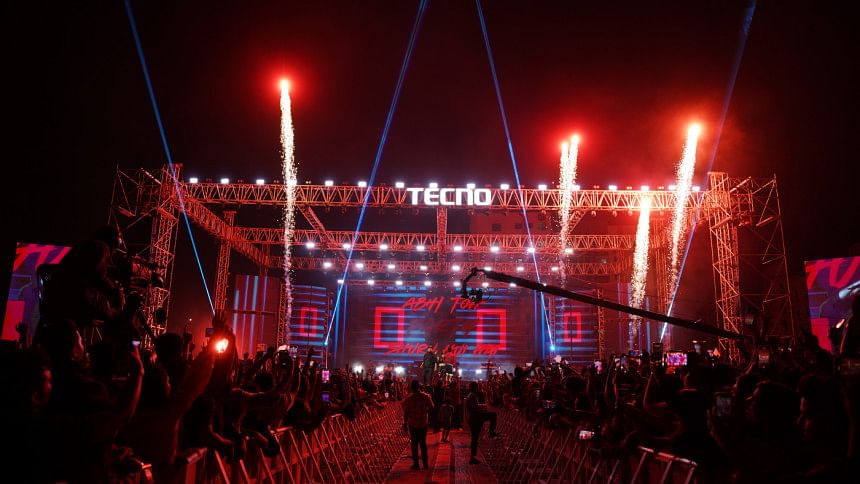
In essence, most people who attended or perform at any event post-tragedy are not blind to the fact that the panache and fireworks seem insignificant in the shadow of something so depressing. While the argument for why postponement should be warranted for such events is self-explanatory, the other side of the coin argues that there are too many moving pieces to take in to account.
Perhaps the rhetoric from Elita Karim sums it up best, "Would you stop going to work the day after a tragedy, or would you extend your sincere condolences and do your job?"
The author is Editor, Arts & Entertainment, The Daily Star.

 For all latest news, follow The Daily Star's Google News channel.
For all latest news, follow The Daily Star's Google News channel. 

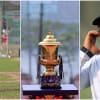


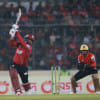



Comments